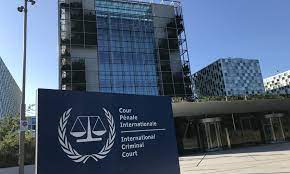The Statute of Rome is a treaty that established the International Criminal Court (ICC), an international court that has jurisdiction over serious crimes such as genocide, war crimes, and crimes against humanity. The treaty was adopted on July 17, 1998, in Rome, Italy, and entered into force on July 1, 2002, after it was ratified by 60 countries.

The Statute of Rome defines the jurisdiction, structure, and functioning of the ICC. The ICC is an independent institution that operates under the auspices of the United Nations (UN) but is not a part of the UN system. The ICC has the power to prosecute individuals who are accused of committing the most serious crimes of concern to the international community, such as crimes against humanity, genocide, and war crimes.
The Statute of Rome provides that the ICC can exercise jurisdiction over individuals who are nationals of states that have ratified the treaty, as well as over crimes that were committed on the territory of a state party, or where the UN Security Council has referred a case to the ICC. The ICC can only prosecute individuals, not states or organizations.
The ICC is composed of four main organs: the Presidency, the Judicial Division, the Office of the Prosecutor, and the Registry. The Presidency is responsible for the overall administration of the ICC, while the Judicial Division consists of judges who hear cases and make decisions. The Office of the Prosecutor investigates and prosecutes cases, while the Registry provides administrative and logistical support to the ICC.
The Statute of Rome has been ratified by 123 countries as of 2021, including many countries in Europe, Africa, and Latin America. However, some major powers such as the United States, China, and Russia have not ratified the treaty. The ICC has been the subject of criticism and controversy, with some countries accusing it of being biased or infringing on their sovereignty. Nonetheless, the ICC continues to play an important role in promoting international justice and accountability for serious crimes.
Important Links